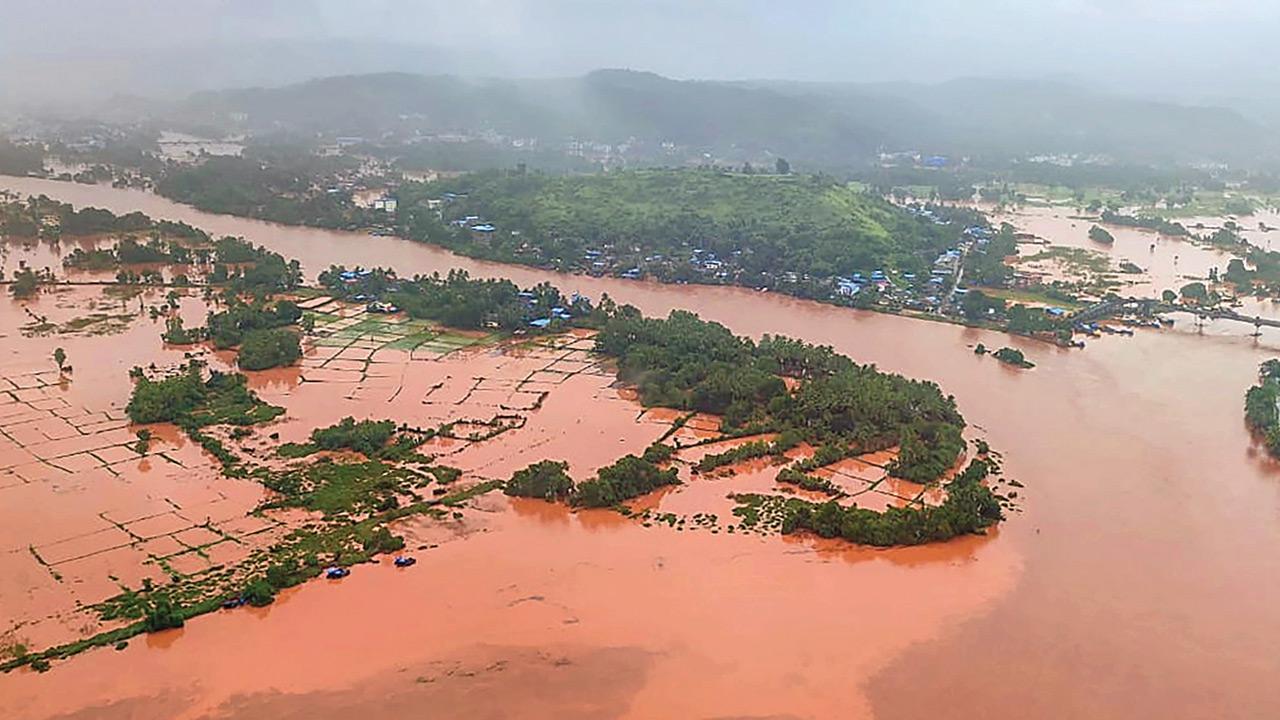Nandurbar most prone to cyclones, floods, droughts, etc.; experts pitch for robust weather forecasting system, change in crop patterns

Chiplun in Ratnagiri district was recently hit by unprecedented floods
About 77 per cent of the state’s cropped area is vulnerable to climate change, said a new study. Of the 36 districts in the state, 11 were found highly vulnerable to droughts and dwindling water security, it added.
These 11 at-risk districts account for almost 40 per cent of the cropped area across central Maharashtra. “In the same way, 37 per cent of the state’s agricultural area spread over 14 districts were moderately vulnerable, which takes the tally to three-fourths of Maharashtra’s cropped regions as high to moderate vulnerable to the prevailing climate crisis,” said the research titled ‘Socio-economic vulnerability to climate change—Index development and mapping for districts in Maharashtra’.
ADVERTISEMENT
The study by Chaitanya Adhav at Indian Council of Agricultural Research-National Dairy Research Institute, Karnal, Haryana, under the guidance of Dr R Sendhil from ICAR-Indian Institute of Wheat and Barley Research revealed that Nandurbar district is most vulnerable to cyclones, floods, droughts, changing rainfall patterns and extreme temperatures. “The other highly vulnerable districts are Buldhana, Beed, Jalna, Aurangabad, Hingoli, Parbhani, Nanded, Akola, Amravati, Washim,” said Adhav.
Fluctuations in rainfall often leave several parts of Marathwada and Vidarbha parched. Representation pic
The 14 districts found moderately vulnerable are Dhule, Jalgaon, Ratnagiri, Sindhudurg, Sangli, Solapur, Osmanabad, Latur, Yavatmal, Wardha, Chandrapur, Bhandara, Gondia and Gadchiroli. Sindhudurg and Ratnagiri were recently hit by unprecedented floods. The study did not include Mumbai City and suburban districts.
According to the India’s Livelihoods Report 2019, farming is the prime livelihood source for 51 per cent of the state’s population. As per the study, field demonstration to farmers and information dissemination through early warning systems must be done at village level to tackle the challenge, apart from policy shifts.
Nine districts, including Palghar, Thane, Nagpur and Pune were found to be least vulnerable to climate agricultural distress. Akshay Deoras, an independent meteorologist and PhD student at the University of Reading in England, said, “In the absence of proper irrigation in most of the state, which mainly includes Marathwada and Vidarbha, fluctuations in monsoon rain affects sowing and crop growth, resulting in high vulnerability to the crop yield.” The lack of a robust weather-forecast dissemination system adds to the vulnerability.
Vijay Anna Borade, an agriculture expert and trustee of Marathwada Sheti Sahayak Mandal, said there is very little ground action despite so much talks on the effects of climate change. “Keeping in mind the vulnerability of districts, changing crop patterns is a solution but it’s not going to be easy. We need to create parallel programmes (adequate drainage, drip irrigation, crop rotation etc.) to get stability in crop productivity and income of farmers.” He added, “Another option is controlled farming which also has financial limitations.”
11
No. of highly vulnerable districts in state
 Subscribe today by clicking the link and stay updated with the latest news!" Click here!
Subscribe today by clicking the link and stay updated with the latest news!" Click here!






